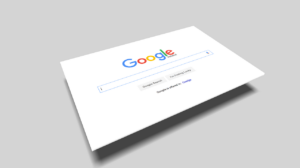When users swiftly navigate away from your website, it’s a clear indicator of underlying issues. Effective user interaction — involving reading your content, clicking on ads and generating leads — is essential for driving revenue and user engagement.
Users often encounter various obstacles that lead to frustration and ultimately result in them abandoning the site. From slow loading times to confusing navigation, understanding these common issues is crucial for any website looking to improve its user engagement and retention.
Read on for the common reasons users get frustrated with websites and how to avoid them.
Your Site Is Slow and Unresponsive
First of all, users prefer the convenience of use and would bounce off a site that takes ages to load or is generally unresponsive. They prefer to click on a site that gives them everything they need in the shortest time possible. Lacking speed and being too unresponsive are deal breakers and you could potentially lose valuable clients.
Slow and unresponsive sites not only deter potential visitors but also reflect poorly on your company’s technological competence, prompting users to choose faster alternatives. This preference significantly influences your search engine ranking and ability to draw in new customers.
47% of visitors expect a site to load in less than 2 seconds, while 40% bounce off to another site if it takes more than 3 seconds to respond. According to Google, the bounce-off rates could reach 123% if there is a 10-second delay. These studies prove that users easily get frustrated with slow sites, hence the need to make sure that your site is fast, responsive, and reliable.
Your Content Is Stale and Outdated
One of the most effective ways to keep visitors returning to your site is by making the content fresh and engaging. People want to see that you are following the latest trends and are up to date with new information; otherwise, they easily lose interest. You have to meet the audience’s expectations and make sure that information is regularly updated.
Talk about topics that people are currently interested in, and they will keep coming for more. You can implement some strategies to keep the readers’ interest.
- Regularly review and update your content – One way to show that you are committed to serving the user’s needs is by reviewing your content regularly and making necessary adjustments.
- Implement a lead generation strategy– You can also offer lead magnets to your site visitors, like whitepapers, ebooks, and webinars.
- Use updated keywords – Another way to improve your page ranking and invite more users is by conducting keyword research and incorporating them into your content. Your site will be more visible and will stay relevant.
Your Navigation Is Confusing
Users go online to find answers immediately, but it becomes impossible if they are met with countless links and navigation options. With very little time to navigate the page, the user easily bounces off to the next site that is friendlier to use. In addition, they move on if they cannot find the information easily.
Most lack the patience to wait that long while trying to determine what the site is about. The best way to deal with this is to make sure that you are mindful of the site visitors during the website design process. Check that you organize your content and make it easy to access. With that, the user will have an easy time when navigating the page and will likely come back.
You Are Bombarding Visitors with Ads
Constant ads affect the user experience. Many find it frustrating when they are bombarded with lights and popups that interrupt their scrolling or block out content. If there are problems with focusing on the site’s content, many choose to go to other pages instead, where they can focus on the actual information that they need. There are also worse instances where the pop-up ads require the user to enter personal details.
Seeing that as an intrusion of their privacy, new users quickly leave the site in search of a better experience elsewhere. The best way to maintain their interest is to show them that you respect them and want them to have the easiest time when navigating the site. Ensure that you keep the ads in check and prevent them from overtaking the entire page.
Lack of Mobile Responsiveness
Studies show that in 2023, around 58.33% of global website traffic came from mobile devices. This shows how vital it is to make your website more mobile-friendly. New users easily get discouraged when they are trying to access your site on their mobile phones but have to keep zooming or scrolling horizontally.
Unfortunately, this is a fast way to lose clients who solely navigate your page via mobile phones. To tackle this, you should consider making the necessary adjustments to the website, making sure that it is mobile-friendly, and easily accessible by phones and tablets.
Lack of Trust and Security
Users are now particular about their online security, making it a priority for any site they visit. Showing you are concerned about user safety earns you an excellent reputation among your new and regular site visitors. You have to earn their trust by implementing security features like SSL encryption and offering a secure form of payment.
If they can trust you from the start, it will be easier to do business with you; no one wants to visit a risky site where their personal information is not safe. To go about this, consider security badges, and offer transparent privacy policies, this way, your site visitors will be at ease knowing that they are safe when they click on your site.
Final Thoughts
Every day, countless websites are launched, yet many fail to make an impact. This often comes from a lack of attention to user needs, leading to disinterest and abandonment for alternative sites. They end up ranking poorly and not achieving their goals, making it crucial to understand why users are frustrated with your page and why they don’t stick around.
Your site may be too slow and unresponsive, with confusing navigation and too many ads. The content may also be out of date or not easily accessible via mobile. The website may also be risky, making users bounce out of it. If you make the content more engaging, and make the necessary improvements on your page, it is only a matter of time before you start ranking high and receiving more visitors daily.





